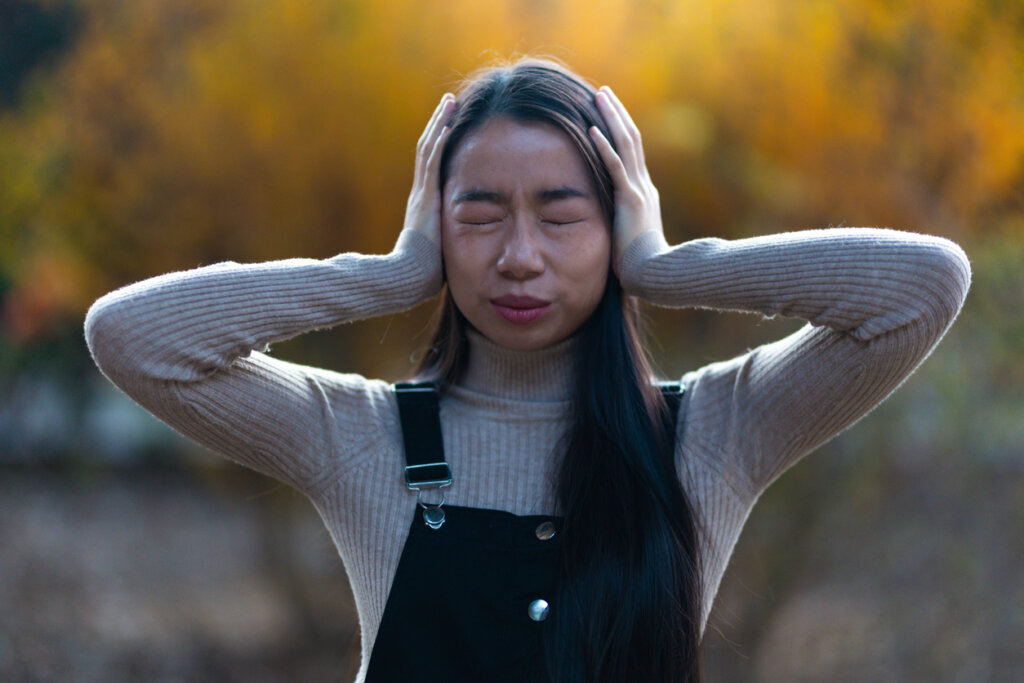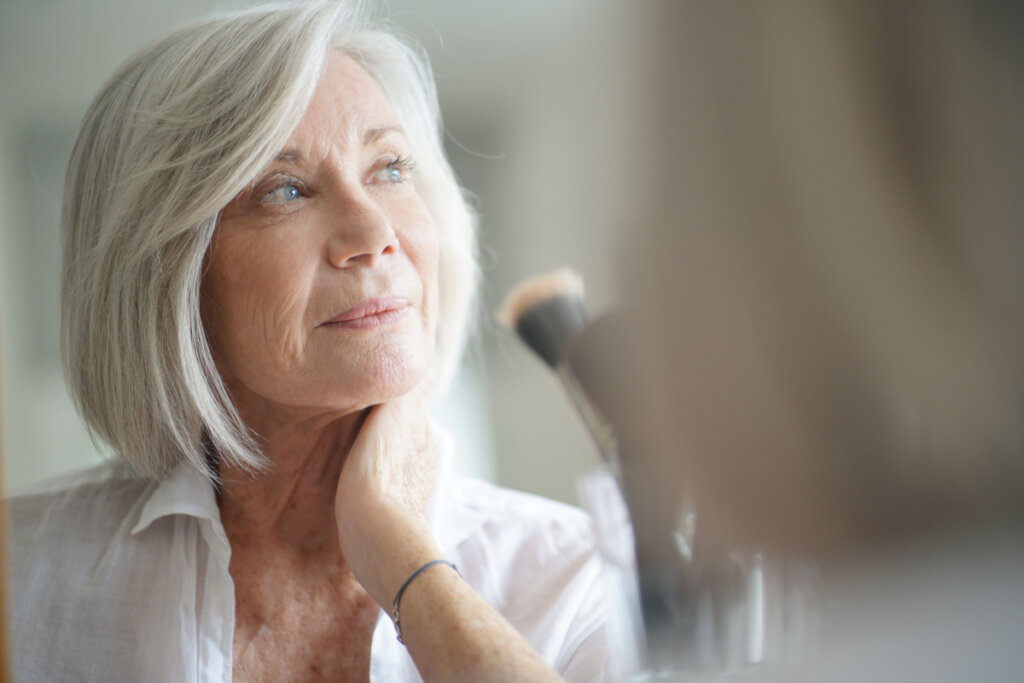Older People Experience Less Daily Stress, Research Claims


Written and verified by the psychologist José Padilla
For most of us, life today is stressful. We have to pay bills, meet certain responsibilities at work or college, and push ourselves to reach our goals, etc. Time passes quickly and doesn’t give us a break and, as productive as we are, the pressure increases.
For many people, their daily demands generate the kind of stress that exhausts them. It’s like there’s no light at the end of the tunnel. However, if you’re dealing with a great deal of stress in your life, it seems there’s no need to worry as a recent study claims that it’s most likely to improve eventually.
Daily stress and health
It’s no secret that, although stress can help you function, when it’s excessive it can negatively affect your health. The longer it lasts, the worse it is for both your mind and body.
According to the American Psychological Association (APA), long-term activation of our stress response system may increase the risk of physical and mental health problems. These include anxiety, depression, digestive problems, muscle tension and pain, high blood pressure, sleep problems, weight gain, and impaired memory and concentration.
Therefore stress on a daily basis doesn’t make for a good companion if you want to enjoy good health. However, it’s not all bad news. In fact, in 2022, David Almeida (2022), a professor at Penn State University (USA) conducted a study concerning daily stress and our responses to it.

Older people experience less daily stress
Almeida’s team used data from the National Study of Daily Experiences (NSDE). This is a national study that collected data on the daily lives of more than 3,000 adults over 20 years. The aim of the research was to examine age-related patterns in respect of exposure and affective reactivity to stressors.
The people who formed the study sample were aged between 25 and 74. They were invited to participate in the Macarthur Foundation Study of Midlife in the United States (MIDUS) project. It was led by the Institute on Aging at the University of Wisconsin-Madison.
Participants conducted telephone interviews for eight consecutive days to assess their daily stress levels. These assessments were repeated at approximately nine-year intervals, providing longitudinal data over 20 years.
Older people experience less daily stress
The results of Almeida’s study indicated that older adults experience less daily stress. In fact, their number of daily stressors and emotional reactivity were both reduced.
The data suggested that 25-year-olds reported stressor days almost 50 percent of the time. On the other hand, adults aged 70 and over reported stressor days only 30 percent of the time.
Therefore, it appears that stress triggers reduce with age. Moreover, in addition to the decrease in the number of daily stressors, the research found that, as people age, they respond less emotionally to daily stressors when they do occur.
“A 25-year-old is much grumpier on the days they experience a stressor, but as we age, we really figure out how to decrease those exposures” Almeida stated in a Penn State news release.
Daily stress tends to decrease until the mid-50s, which is when people seem to be less affected by stress. Interestingly, Almeida also argues that advancing age (late 60s and early 70s) might actually bring more challenges and a slight increase in daily stress.
We all age in our own way. How we do it depends not only on the challenges and stressors we face but also on how we respond to and manage those situations.
“With this new research it’s encouraging to see that, as we age, we begin to deal with these stressors better. On average, the experience of daily stress will not get worse, but in fact better,” Almeida said.

Post-pandemic findings
Almeida’s team is now awaiting the next data collection for MIDUS. It’ll be the first since the COVID-19 pandemic began. This new data will help to assess the impact of the pandemic on daily reactivity to stress. In addition, it’ll allow further study of how people grow and change during adulthood.
“Growing older from 35 to 65 is very different than growing older from 65 to 95,” Almeida said. “We’ve started to see that in the data already, but this next round of data collection and analysis will give us an even greater understanding of what that looks like.”
Thanks to this study, we now know that older adults experience less daily stress. Therefore, you can be confident that time will work in your favor. However, this doesn’t mean that you should simply wait for time to pass. In fact, you can start now by better managing and facing the stressful situations you face on a daily basis.
For most of us, life today is stressful. We have to pay bills, meet certain responsibilities at work or college, and push ourselves to reach our goals, etc. Time passes quickly and doesn’t give us a break and, as productive as we are, the pressure increases.
For many people, their daily demands generate the kind of stress that exhausts them. It’s like there’s no light at the end of the tunnel. However, if you’re dealing with a great deal of stress in your life, it seems there’s no need to worry as a recent study claims that it’s most likely to improve eventually.
Daily stress and health
It’s no secret that, although stress can help you function, when it’s excessive it can negatively affect your health. The longer it lasts, the worse it is for both your mind and body.
According to the American Psychological Association (APA), long-term activation of our stress response system may increase the risk of physical and mental health problems. These include anxiety, depression, digestive problems, muscle tension and pain, high blood pressure, sleep problems, weight gain, and impaired memory and concentration.
Therefore stress on a daily basis doesn’t make for a good companion if you want to enjoy good health. However, it’s not all bad news. In fact, in 2022, David Almeida (2022), a professor at Penn State University (USA) conducted a study concerning daily stress and our responses to it.

Older people experience less daily stress
Almeida’s team used data from the National Study of Daily Experiences (NSDE). This is a national study that collected data on the daily lives of more than 3,000 adults over 20 years. The aim of the research was to examine age-related patterns in respect of exposure and affective reactivity to stressors.
The people who formed the study sample were aged between 25 and 74. They were invited to participate in the Macarthur Foundation Study of Midlife in the United States (MIDUS) project. It was led by the Institute on Aging at the University of Wisconsin-Madison.
Participants conducted telephone interviews for eight consecutive days to assess their daily stress levels. These assessments were repeated at approximately nine-year intervals, providing longitudinal data over 20 years.
Older people experience less daily stress
The results of Almeida’s study indicated that older adults experience less daily stress. In fact, their number of daily stressors and emotional reactivity were both reduced.
The data suggested that 25-year-olds reported stressor days almost 50 percent of the time. On the other hand, adults aged 70 and over reported stressor days only 30 percent of the time.
Therefore, it appears that stress triggers reduce with age. Moreover, in addition to the decrease in the number of daily stressors, the research found that, as people age, they respond less emotionally to daily stressors when they do occur.
“A 25-year-old is much grumpier on the days they experience a stressor, but as we age, we really figure out how to decrease those exposures” Almeida stated in a Penn State news release.
Daily stress tends to decrease until the mid-50s, which is when people seem to be less affected by stress. Interestingly, Almeida also argues that advancing age (late 60s and early 70s) might actually bring more challenges and a slight increase in daily stress.
We all age in our own way. How we do it depends not only on the challenges and stressors we face but also on how we respond to and manage those situations.
“With this new research it’s encouraging to see that, as we age, we begin to deal with these stressors better. On average, the experience of daily stress will not get worse, but in fact better,” Almeida said.

Post-pandemic findings
Almeida’s team is now awaiting the next data collection for MIDUS. It’ll be the first since the COVID-19 pandemic began. This new data will help to assess the impact of the pandemic on daily reactivity to stress. In addition, it’ll allow further study of how people grow and change during adulthood.
“Growing older from 35 to 65 is very different than growing older from 65 to 95,” Almeida said. “We’ve started to see that in the data already, but this next round of data collection and analysis will give us an even greater understanding of what that looks like.”
Thanks to this study, we now know that older adults experience less daily stress. Therefore, you can be confident that time will work in your favor. However, this doesn’t mean that you should simply wait for time to pass. In fact, you can start now by better managing and facing the stressful situations you face on a daily basis.
All cited sources were thoroughly reviewed by our team to ensure their quality, reliability, currency, and validity. The bibliography of this article was considered reliable and of academic or scientific accuracy.
- Almeida, D. M. (1997). Midlife in the United States (MIDUS 1) National Study of Daily Experiences (NSDE), 1996-1997. Inter-university Consortium for Political and Social Research. https://www.icpsr.umich.edu/web/NACDA/studies/3725/versions/V6
- Almeida, D. M., Rush, J., Mogle, J., Piazza, J. R., Cerino, E. & Charles, S. T. (2022). Longitudinal change in daily stress across 20 years of adulthood: Results from the national study of daily experiences. Developmental psychology. 59(3), 515–523. https://psycnet.apa.org/record/2023-05803-001
- American Psychological Association (APA). (2022, Oct 31). How stress affects your health. Revisado en Mar 03, 2023. Disponible en: https://www.apa.org/topics/stress/health
- Campbell, M. (2022, Nov 30). Study finds that experiences of daily stress decrease as people age. PennState. Revisado en Mar 03, 2023. Disponible en: https://www.psu.edu/news/health-and-human-development/story/study-finds-experiences-daily-stress-decrease-people-age/
This text is provided for informational purposes only and does not replace consultation with a professional. If in doubt, consult your specialist.







